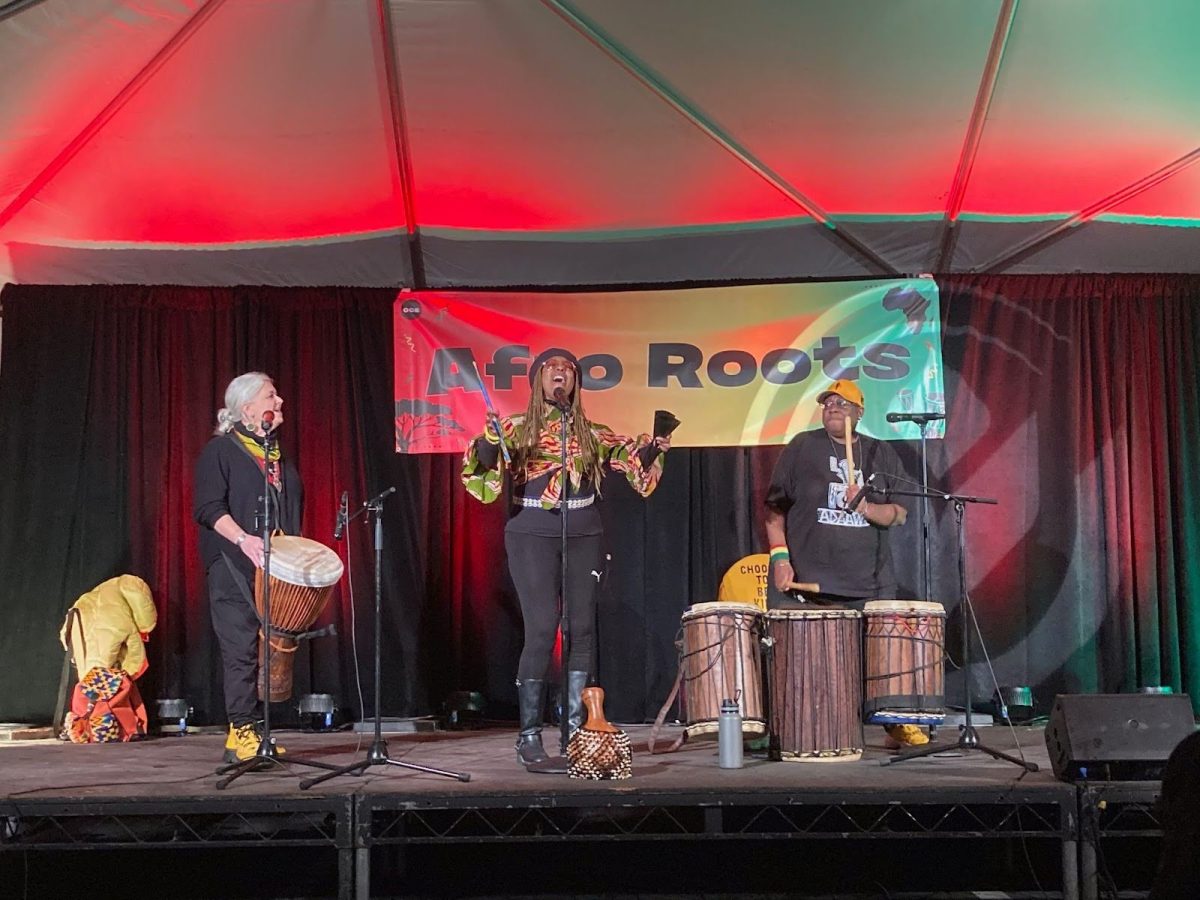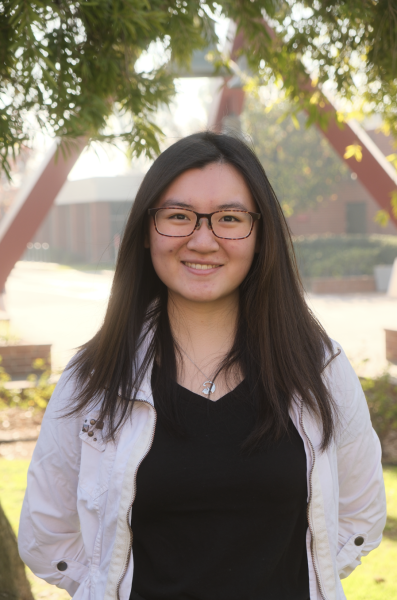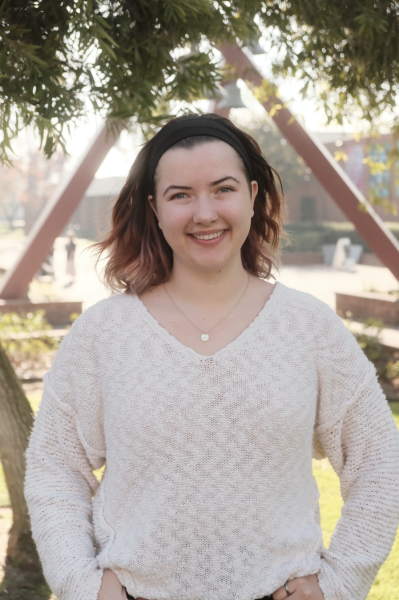On Thursday, Feb. 13, Biola’s first Afro Roots event sprang to life in the parking lot behind Fluor Fountain. From 7–9 p.m., the event featured a variety of foods and activities from 13 African countries and invited speakers, dancers and other guests from Biola and beyond to take part in celebrating black and African culture.
GROWING APPRECIATION
Jet Pokossy, a freshman kinesiology major from Douala, Cameroon, loved getting to interact with people as he served his cultural food, Koki (a dish made from corn steamed in banana leaves), at one of the booths in Afro Roots.
“Interacting with people, teaching them, showing them where I’m from, that’s definitely the best moment,” said Pokossy. “You know, actually, some of them were like, ‘Oh, we need to go and travel to Cameroon.’ So, pretty cool.”
Participating in Afro Roots also aided in Pokossy’s own appreciation for his country and food.
“I knew about the food I was serving, but I didn’t know what it was really made of,” said Pokossy. “So it was also like a learning experience [for] myself, coming from that country.”
As one who was always searching to befriend people like himself around campus, Pokossy was also delighted to be creating bonds with those from neighboring African countries during Afro Roots.
“Even though I’m from Africa, it’s so cool to learn about other countries around me, because I don’t get the opportunity to travel to those countries, so having them all together here, I mean, it’s pretty cool. It’s really nice,” Pokossy said.
PLANNING FOR AFRO ROOTS
The idea and planning for Afro Roots began mid-semester of Fall 2024, shortly after Fiesta Latina, the Hispanic heritage event. Emily Propst, program coordinator for Community Life, helped lead the charge to create and host this event, inspired by several of her student staff that hosted their own event to celebrate Black History Month last year. The students, members of Biola African Student Association (BASA) and Ethiopian and Eritrean Student Association (EESA), had sought and failed to receive funding for their clubs to host an event and pulled from their personal funds in order to carry out their plan.
“It was highly attended, and I think people really wanted to come to that event,” said Propst. “But the student clubs left feeling just unsupported by their institution, not really valued in terms of cultural celebration in the same way that some of our other student groups have been, and they expressed how difficult that kind of experience was.”
Propst felt it was a very clear decision for her to add a new event for Biola’s black and African students, stating, “It was simply what I needed to do.”
The Office of Campus Engagement (OCE) worked with various groups at Biola to bring Afro Roots to reality, collaborating with Global Student Engagement (GSE), Student Enrichment and Intercultural Development (SEID), the Veterans Center, Commuter Life, Gospel Choir, as well as Black Student Union (BSA), BASA and EESA. Afro Roots also featured groups from outside Biola, such as a West African dance group from University of California, Irvine (UCI) as well as African voice and drum performance group ADAAWE.
“It’s really nice to see entertainment from inside Biola and from outside Biola all come together for this event,” said Propst.
Meanwhile, Pokossy looks forward to more events like Afro Roots in the future.
“It’s the first time we did something like this, so hopefully we get to do more events like that, because I mean, a lot of people came out,” said Pokossy.







